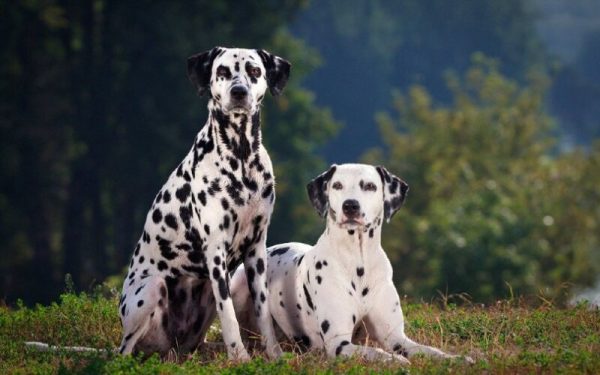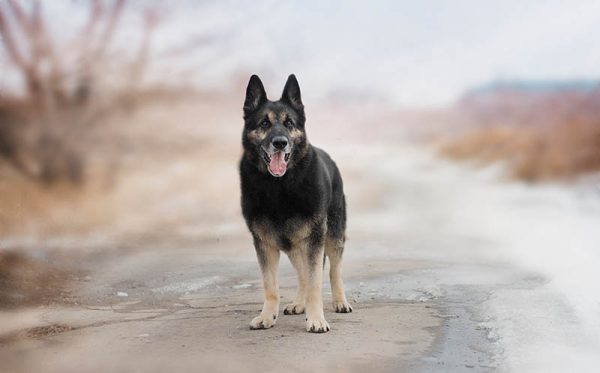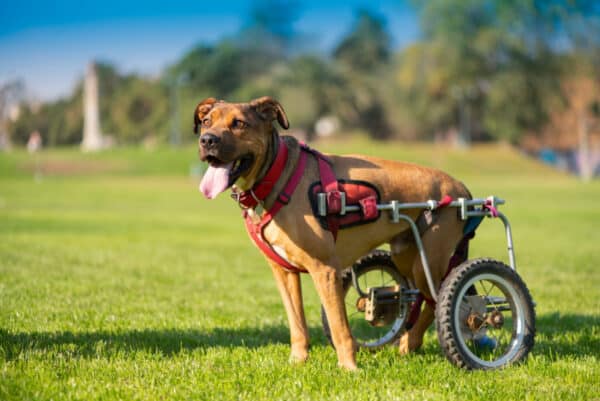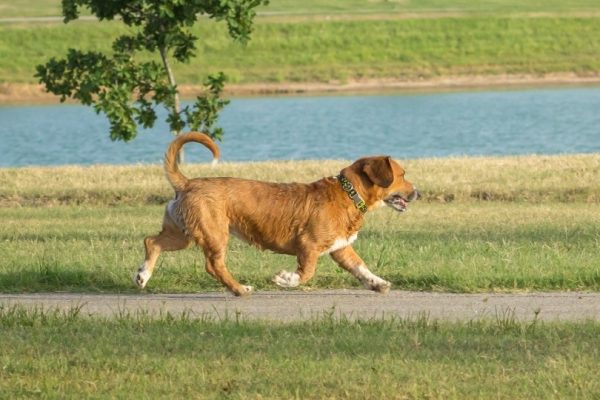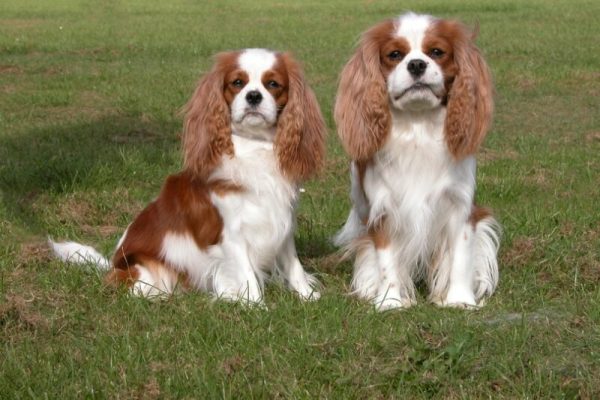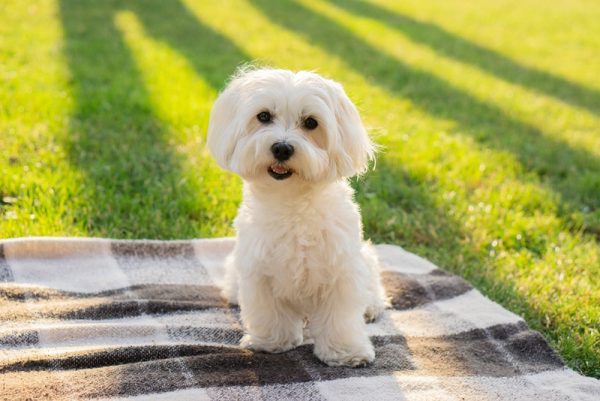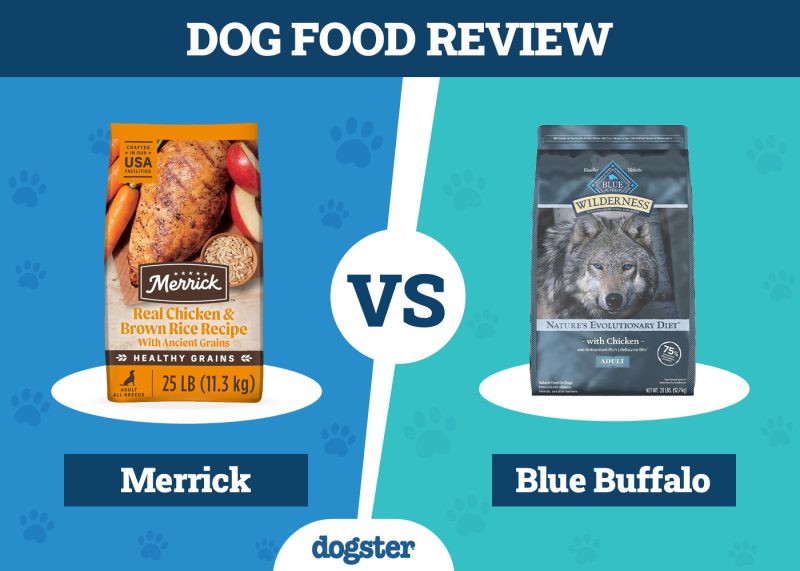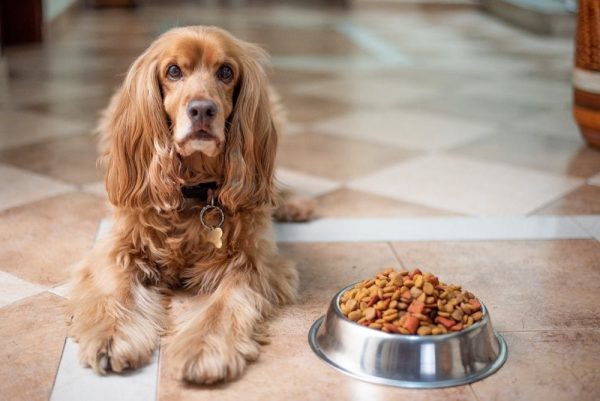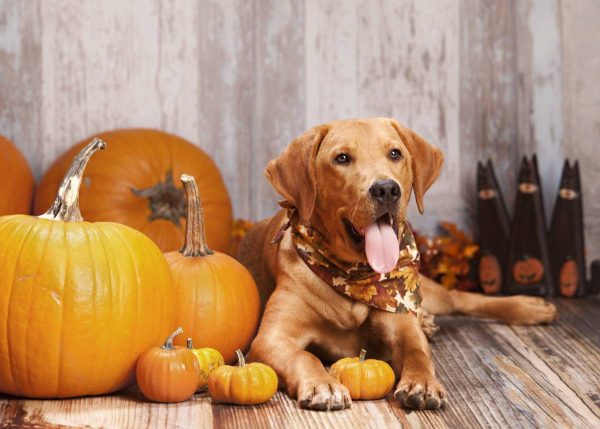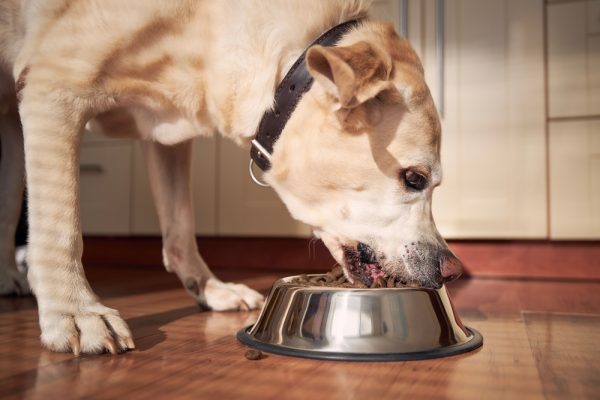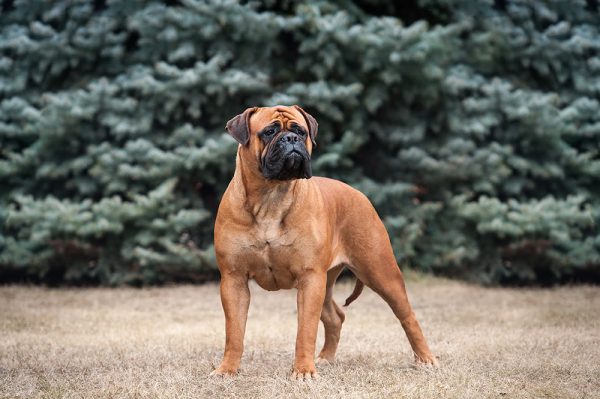In this article
Choosing the right dog for your home can be difficult, especially when you’re torn between two dog breeds that are related. This happens often when it comes to the Cavalier King Charles Spaniel and the Cocker Spaniel. Yes, both of these breeds belong to the same family, considered cousins in fact, but each has its own features and personality for you to fall in love with.
Let’s take a more in-depth look at the Cavalier King Charles Spaniel vs the Cocker Spaniel so you can decide which of these amazing dogs would make the perfect addition to your home.

Cavalier King Charles Spaniel vs Cocker Spaniel: Visual Differences
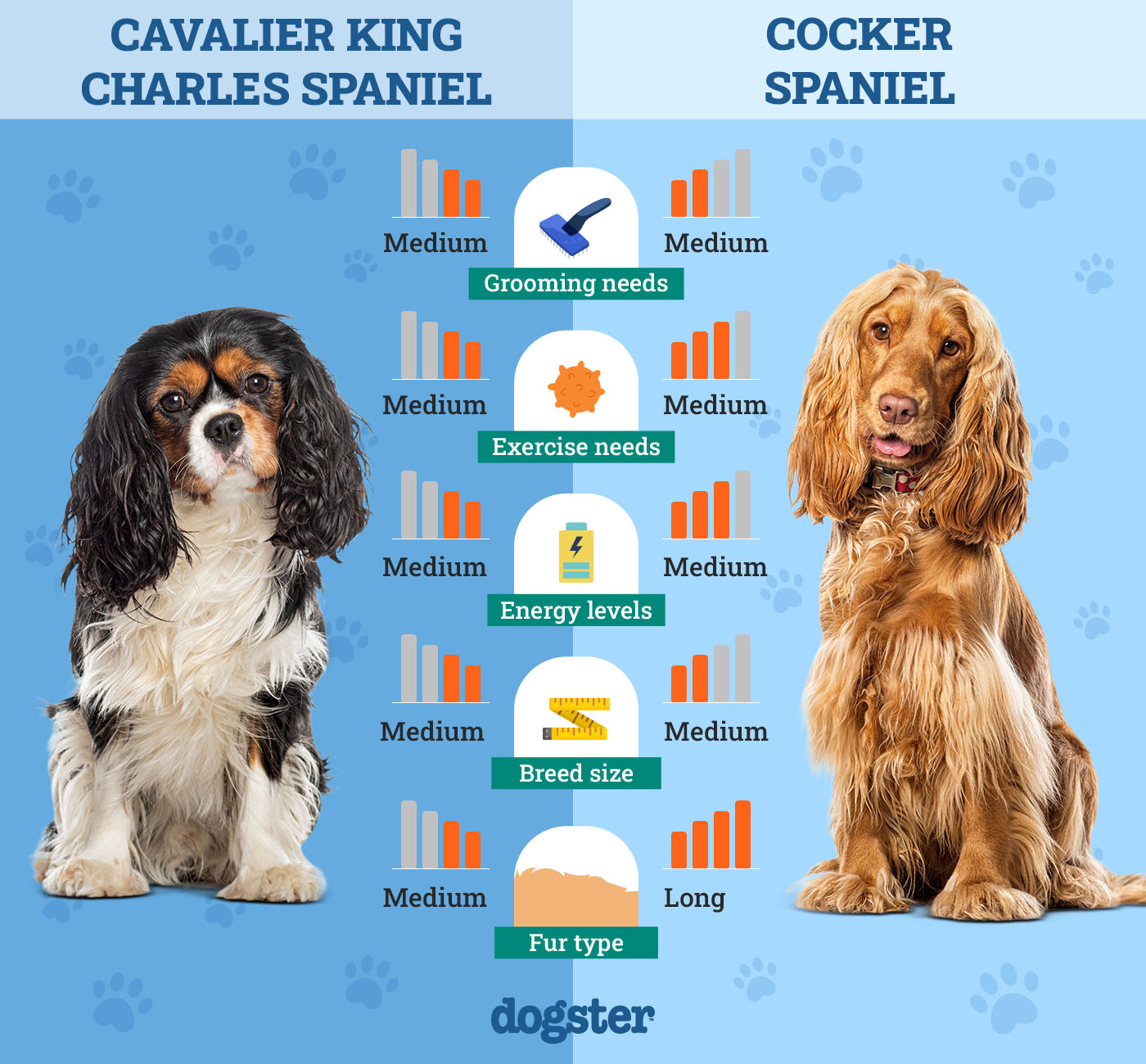
At a Glance
- Average height (adult): 12–13 inches
- Average weight (adult): 13–18 pounds
- Lifespan: 12–15 years
- Exercise: 30 minutes per day
- Grooming needs: Moderate
- Family-friendly: Yes
- Other pet-friendly: Often
- Trainability: Fearless, gentle, affectionate, eager to please
- Average height (adult): 14–15 ½ inches
- Average weight (adult): 25–30 pounds
- Lifespan: 10–14 years
- Exercise: 1+ hours a day
- Grooming needs: high
- Family-friendly: Yes
- Other pet-friendly: Often
- Trainability: Intelligent, active, loving, affectionate

Cavalier King Charles Spaniel Overview
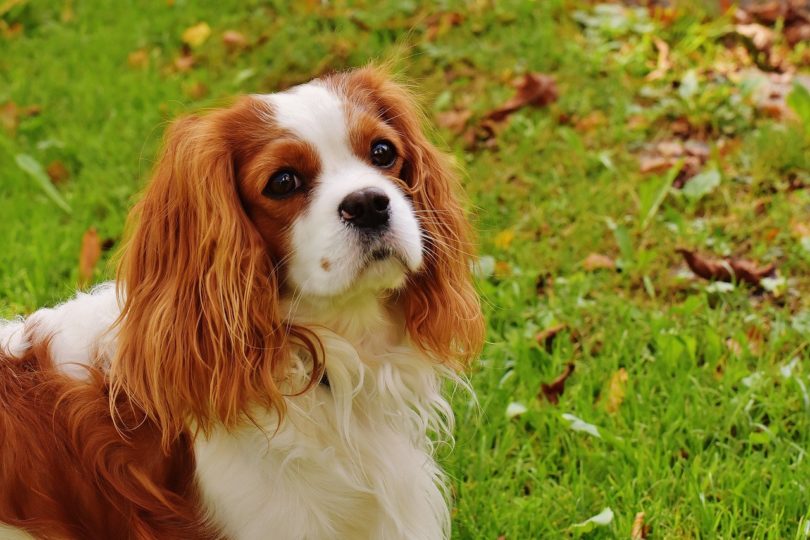
The Cavalier King Charles Spaniel is a toy breed that is easily one of the most beloved in the world. These adorable dogs originate from the King Charles Spaniels. The King Charles Spaniel was originally bred with pugs in the 1600s to create the breed we know today.
In the 1920s, however, a woman named Roswell Eldridge wanted the King Charles Spaniel to revert to their original appearance, which features a longer, more defined snout. This new breed became known as the Cavalier King Charles Spaniel. This new emergence was accepted by the AKC in the 1940s and remains with us today.
Personality and Character
The Cavalier King Charles Spaniel is a non-aggressive dog with an extremely friendly demeanor. They are affectionate dogs that do great with families of all sizes, including children of all ages. They are considered fearless and normally show no issues with nervousness or being shy.
This makes them great at meeting new people, engaging with other animal friends, and being around an extended family. These easy-going dogs can adapt to your lifestyle, making them an ideal breed for everyone.
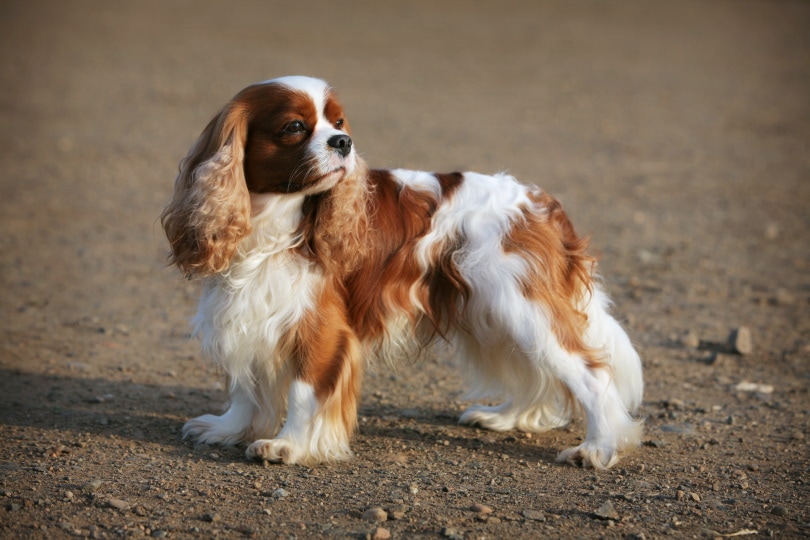
Appearance
The adorable Cavalier King Charles Spaniel sports a black, tapered muzzle and big, brown eyes. Their medium coat is long, feathery, and silky to the touch. The standard color varieties for this dog breed include Blenheim, a white coat with chestnut markings, Ruby which is chestnut red, Prince Charles, or tricolor featuring black, tan, and white markings, and King Charles, consisting of tan markings on a black coat.
Training
The Cavalier King Charles spaniel is a relatively smart breed that can be trained easily. The most important thing to keep in mind when training this breed, or any dog breed, is to begin training early. You’ll also need to be prepared for the Cavalier King Charles’s low exercise requirements. It is best for this toy breed to limit exercise to roughly 30 minutes per day. Do not overexert them during training to honor this need.
Grooming Needs
This dog breed is considered a moderate shedder. This doesn’t mean their silky coats don’t require a lot of care. Cavaliers should be brushed daily to help avoid tangles in their fur. Routine baths with conditioning or detangling dog shampoo will make your life easier. Their ears should also be watched carefully to ensure there are no signs of infection due to their long hair.
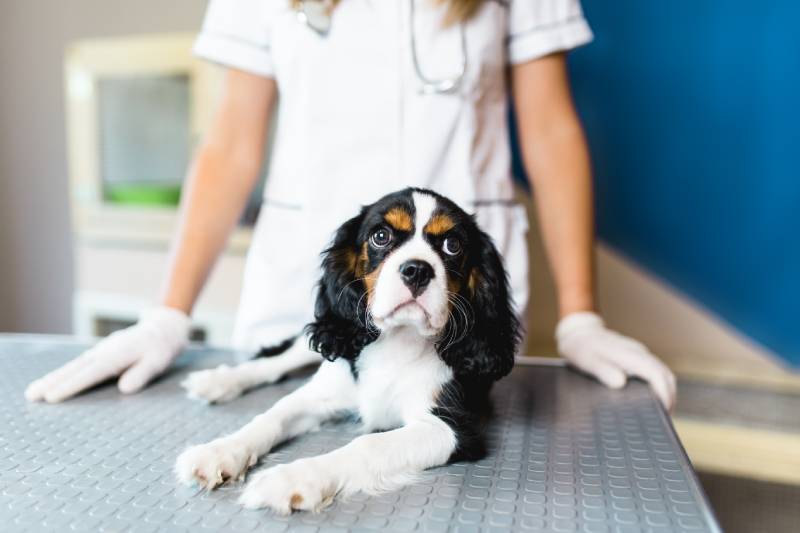
Health
The Cavalier King Charles spaniel is a relatively healthy family dog. Their long lifespan is a great indication of this fact. Unfortunately, like many other dog breeds, there are certain illnesses the Cavalier is prone to. These include heart murmurs, ear infections, digestive problems, and heart disease. It is important to take your Cavalier to the vet routinely for required vaccinations and checkups.
Suitable For:
As you can see by the temperament and personality of the Cavalier King Charles spaniel, they can do great with most families. However, it is best to remember that this is a toy breed. While they will match your energy levels they do need their downtime. If you can honor this, and keep up with their grooming and care needs, they can make ideal members of the family.

Cocker Spaniel Overview
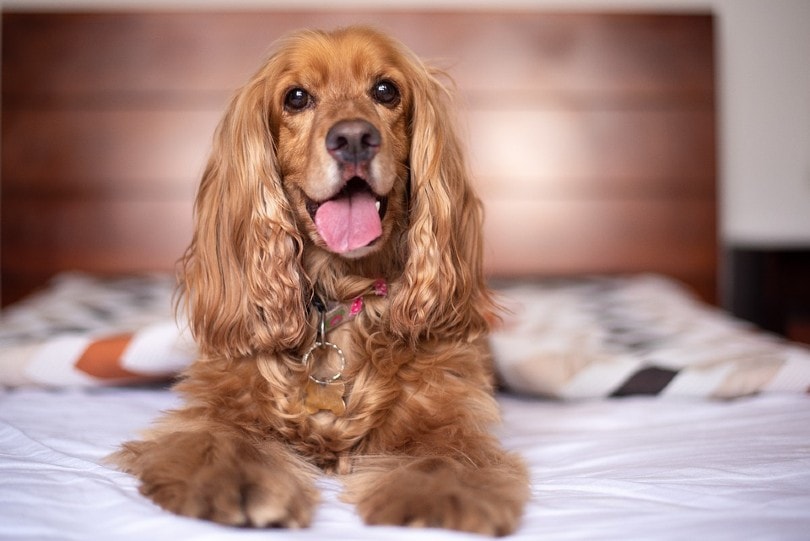
The Cocker Spaniel is a well-known and popular dog breed worldwide. This dog breed originated in Spain, as the name would suggest, and was originally known as Spaniels. Upon their arrival in England, the use of these dogs as hunting companions began. They were great at flushing out prey. Unfortunately, they were also quite loud and loved to bark. While hunters took time to reload their guns, the dogs would have ample time to run the prey away.
Things changed, however, when Spaniels showed their prowess in bird hunting. The Cocker Spaniels we know today weren’t specifically bred. Instead, they were produced by Springer Spaniels in litters along with 2 other types of spaniels. As time went on, the English version of the Cocker Spaniel continued their lives as hunters. The Cocker Spaniels in America became show dogs, then family dogs.
Personality and Character
Considering their hunting background, it would be a mistake to consider the cocker spaniel the type of dog to simply lounge around. They enjoy playing and finding adventure. They are also very happy-go-lucky dogs. If your cocker spaniel can spend time with you, they are all for it. Their high energy levels also make them ideal in family settings.
While they may look regal, they love to play with the kids and are even-tempered and loving. You’ll even find that they do great getting along with other pets in the family. Just be prepared, the Cocker Spaniel is more vocal than the Cavalier and doesn’t mind barking when they meet a stranger.
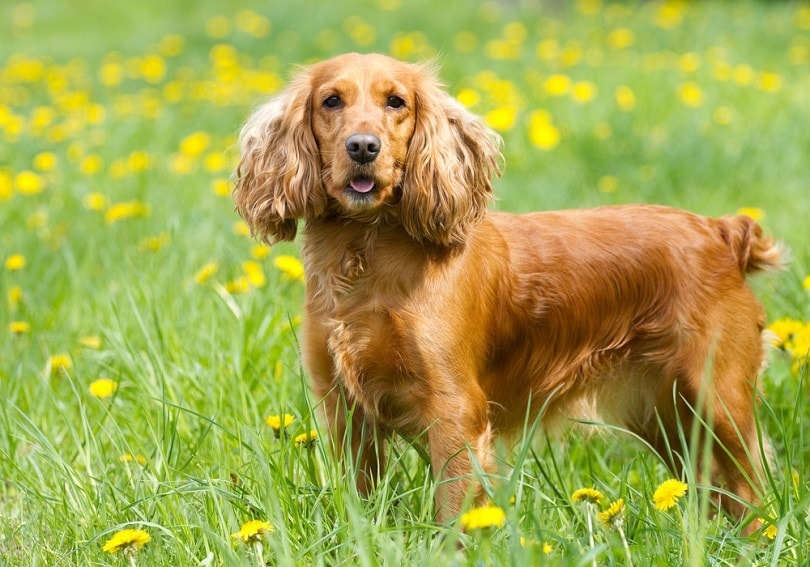
Appearance
The Cocker Spaniel is similar to the Cavalier with their soulful brown eyes and flowing hair. You’ll find their coat to be silky and lush. It also feathers around their ears, legs, belly, and tail. The acceptable colors of the Cocker Spaniel include black, sable, pied, gray, red, silver, and brown. Their coats can be either solid or roan and still meet standards.
Training
The Cocker Spaniel is quite easy to train. These dogs are highly intelligent and build off their years of breeding as hunting dogs. Cockers want to please their humans. If you start at a young age, you’ll find that a cocker spaniel can pick up on things easily and does great with rewards and positive reinforcement.
Grooming Needs
Cocker Spaniels are known to shed more than the Cavalier, but you’ll find they require a little less grooming. If you pay close attention to their coats and brush them 3 to 4 times a week, they will remain lush and beautiful. Keep in mind that tangles are possible so pay close attention. Routine bathing is a must to keep their thick fur free of dirt and debris.
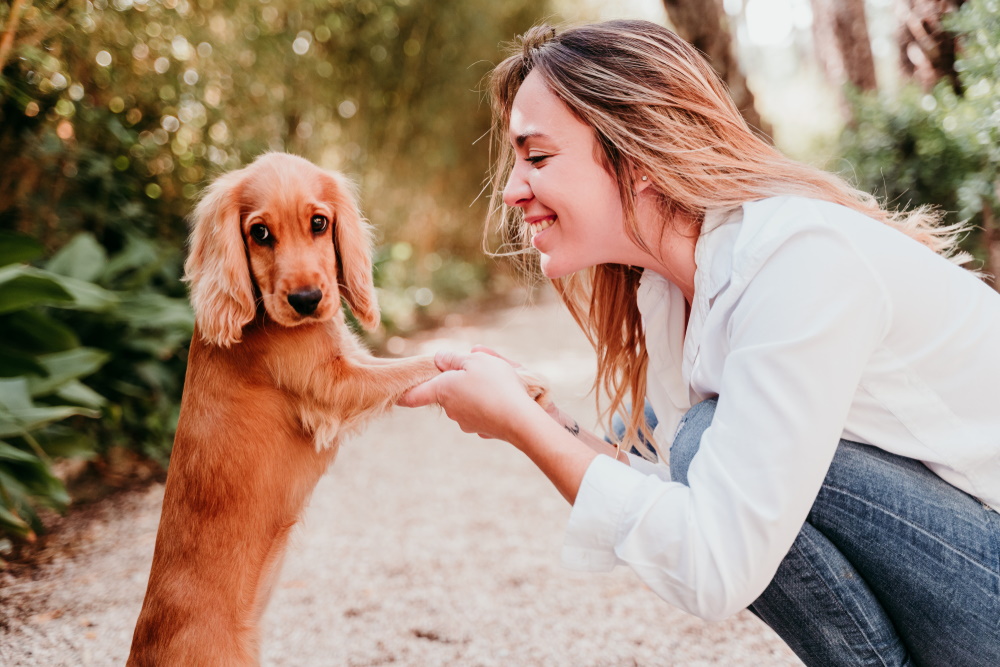
Health
Like the Cavalier, Cocker Spaniels are relatively healthy but they do face a few illnesses thanks to their breed. If you choose to bring one of these dogs into your home, visit the veterinarian routinely to stay up to date on vaccines. Your vet will also help you watch for these known issues: progressive retinal atrophy, cataracts, patellar luxation, glaucoma, and ear infections.
Suitable For:
The Cocker Spaniel is a great dog to make part of your family. They have the energy to play and explore if that’s what the two of you enjoy. They’ll also spend time with you around the house. This breed is suitable for almost any situation and does great with families.
Remember, however, that they do require more exercise than a Cavalier, at least an hour or more. If you can’t commit to keeping them active and mentally stimulated, a Cocker Spaniel may not be the right fit for you.

Cavalier King Charles Spaniel vs Cocker Spaniel: Which Breed Is Right For You?
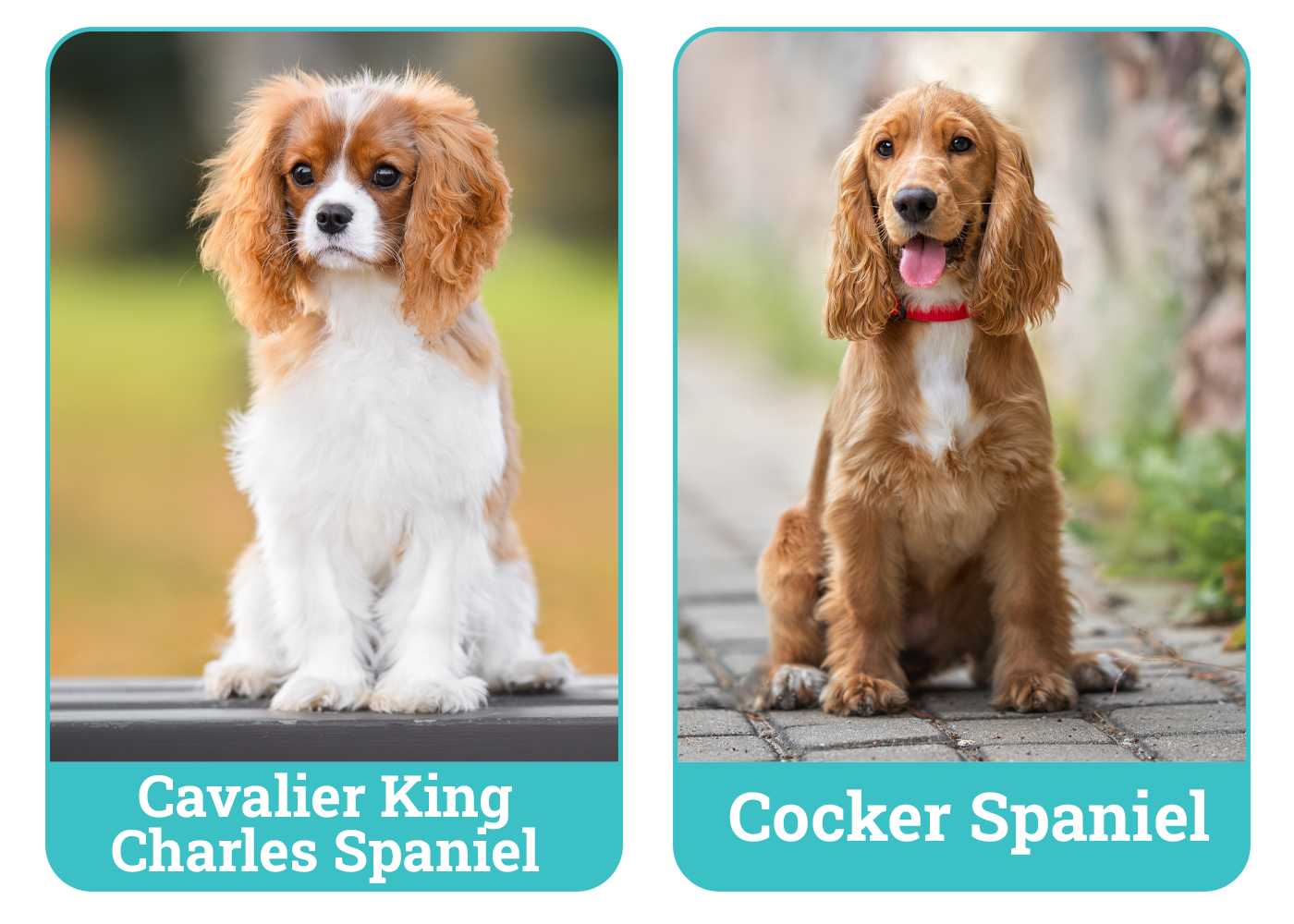
When it comes to the Cavalier King Charles Spaniel vs the Cocker Spaniel, choosing just one is difficult. If you are determined to bring only one of these adorable pooches into your life, take a look at your lifestyle first. If you are more laid back and prefer a companion who will stay by your side and love you endlessly, the Cavalier King Charles Spaniel is perfect. They do well in families but are a toy breed that needs to take it easy from time to time. They also have a longer expected lifespan.
If you like adventure, playing outside, and staying stimulated, the Cocker Spaniel will make a great addition to your home. They will romp and play with you and the kids. This breed is loving and affectionate but needs mental and physical stimulation to be truly happy.
When you take a look at your life, and the time you can provide to your companion, the decision should become clearer. Either way, you’ll have a gorgeous dog that will love you completely.
See Also:
- Springer Spaniel vs Cocker Spaniel: Key Differences (With Pictures)
- English vs American Cocker Spaniel: Key Differences (With Pictures)
Featured Image Credit: Top – lauren-bate, Pexels | Bottom – Adriana Morales, Pixabay


